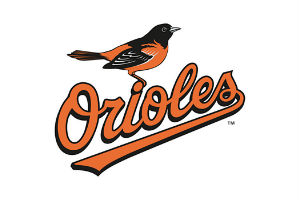
The club is currently on an 18-game losing streak. Earlier this season, the team suffered through a 15-game losing streak, thus becoming the first team in American League history with two streaks of 13 or more games in a single season – ouch.
At 38-85 – again ouch – they are on pace to lose in excess of 108 games in three straight complete seasons. (The O’s were 25-35 in 2020’s COVID-19 campaign.) How bad is this?
The last team to lose that many games over three seasons was the 1962-1965 New York Mets – yikes, those Mets.
I have been a fan of this team my entire life, both as a fan and as a writer. I covered the team in their 1983 World Series win over the Philadelphia Phillies. This is hard to digest.
Someone recently emailed me asking if it was embarrassing to be an Orioles fan; out of my fondness for that individual, I did not answer that question.
I asked myself how many games that individual has been to this season; ask me the same question, and the answer is enough. Enough to understand what the plan is.
The Orioles rebuild blueprint is simple: tear it down to the ground, haul away the debris and start over. This is all part of the club’s massive rebuild under the direction of general manager Mike Elias, a Yale graduate and Northern Virginia native.
Elias is focused on duplicating what Houston achieved recently where he served as assistant GM.
When Elias arrived in Baltimore three years ago, he warned the fanbase of what was to come. Addressing a couple thousand fans at the teams’ mid-winter fan fest, of which I was a part, Elias stated, “It’s going be tough, and then it’s going to get tougher.” Tough as in ugly, tougher as in, ugh … uglier.
In Houston, where baseball plays third fiddle to football, then football again, the rebuild basically flew under the radar. Attendance figures didn’t deviate much from successful seasons.
The Astros stripped down the organization, shedding payroll and rebuilding the team from the ground up, investing in player development, acquiring talented players with high draft picks.
In Baltimore, Elias is dealing with an increasing disgruntled fan base that is becoming inpatient, the big-league team is suffering, often trotting out a Triple-A level team on a nightly basis.
Back to Houston, in 2017, six years after the rebuild, the Astros won its first World Series, suddenly making all those losses a bit more acceptable.
The O’s are currently in the center of the storm. They are a disaster at the major league level, they are making SportsCenter for all the wrong reasons. But help is on the way. Baltimore now has the No. 2 farm system, per Baseball America, featuring the No. 1 hitter (Adley Rutschman) ad No. 1 pitcher (Grayson Rodriguez).
The bottom line: nothing the Orioles are going through now did not also happen to the Astros a few years ago. Right now, being bad is good for Baltimore.
The overall picture is that the horrible record the team is enduring now, “tanking,” as it is known in the NBA, is very much alive in MLB, and sometime soon the Orioles might start improving instead of trying to make sure they don’t.
For now, what? Us Orioles fans have little choice but to buy into the rebuild, which isn’t all that difficult. I still go to the games, enjoy the experience of Camden Yards and get out of the parking lot pretty darn quickly. But I cant wait for that long wait in the parking lot again.
Story by Scott German








